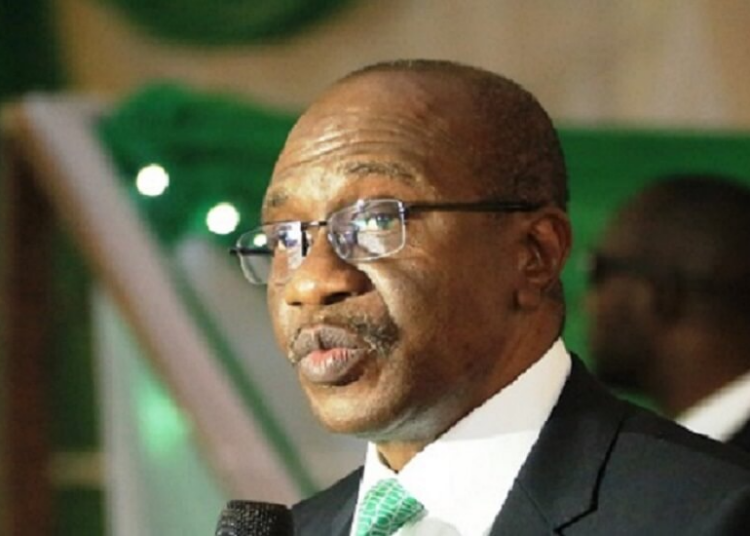The current monetary tightening stance of the Central Bank of Nigeria is simply a response to the structurally induced demand-pull inflation in the country, writes MARK ITSIBOR
Nigeria is one of the many countries of the world that are currently experiencing sharp increase in monetary interest rate (MPR) popularly known as benchmark interest rate. With global economic crisis, which is largely driven by the ongoing war between Russia and Ukraine on the back of the drag on effects of the restrictions from outbreak of COVID-19 pandemic, financial conditions have tightened as central banks across the world accelerate monetary policy normalization to keep rapid inflation from becoming entrenched.
As a result, financial conditions have tightened as central banks continue to hike monetary rates. Amid that, the highly uncertain global environment risks to financial stability have increased substantially.
The issues were not as this scary when Tobias Adrian wrote in 2022 that global markets have started showing strains, with investors becoming more risk-averse amid heightened economic and policy uncertainty.
As at October of last year when he made the observations, financial asset prices had not fallen as much as now, Nigeria’s inflation had not risen to 21.91 percent, the nation’s public debt stock had not hit N46.25 trillion, many central banks had not tightened monetary policy rates to the current levels, and bond yields had not risen broadly to the present level across credit ratings.
In Nigeria, the contagious impact of the global supply chain disruptions, exacerbated by domestic structural issues, including insecurity, fiscal deficit, electioneering spendings and rising headline inflation – both core and food inflation – have made monetary policy decisions more complex for managers of the economy, especially the Central Bank of Nigeria.
Nigeria’s inflation has been on steady rise since the last 12 months. The nation’s inflation rate climbed to a new 17-year high of 21.91 percent in February 2023, representing a 0.09 percent point increase when compared to the 21.82 percent recorded in the previous month. This is according to the recently released Consumer Price Index (CPI) report by the National Bureau of Statistics (NBS).
The increase was attributed largely to a minimal rise in the food component to 24.35 percent in February 2023, from 24.32 percent in January 2023, while the core component moderated to 18.84 percent in February 2023, from 19.16 percent in January 2023.
The shocks to the food component were driven by high cost of transportation of food items, lingering security challenges in major food-producing areas and legacy infrastructural problems, which continue to hamper food supply logistics.
However, the rise in inflation rate is now being moderated by the consistent intervention of the Monetary Policy Committee of the CBN in recent times. That moderation in other components of inflation, except food inflation is as a result of the progressive monetary policy normalization of the apex bank.
In its meeting in March, the MPC raised the monetary policy rate by 50 basis points to hit the 18 percent cap in response to the persistent inflationary pressures, with a focus on stopping it from further growth.
The key factors that have kept inflation above the long-run target of central bank and fiscal authorities include: the persistent disruption in the food supply chain, occasioned by the widespread insecurity, high commodity prices; and the recent general elections. It is now hoped that the aim of the monetary policy increment, which is to rein in inflation is able to yield significant success soonest.
That said, the continued upward pressure of inflation, rising cost of debt and debt servicing, as well as deteriorating fiscal balances remain headwinds, which may undermine the smooth path to a faster recovery. As noticed from the above analysis, the high cost of commodities or food items has resulted in demand-pull inflation.
For the sake of emphasis, when demand for goods or services rises faster than the supply of those goods and services, the result is demand-pull inflation. Demand-pull inflation is when there is an increase in aggregate demand, and the supply remains the same or decreases.
The truth is that, there is a limit to what the monetary authorities can do other than increase the cost of funds through the instrumentality of hike in interest rate. Apart from its core aim of tempering with the benchmark interest rate, the CBN has also employed other money control tools to check the volume of money in circulation with a focus on taming the scourge of inflation.
Economic expert, Stephen Kanabe has got a response for those who blame the CBN for the hike in interest rate. For him, “there is nothing the central bank can do, other than money control in this instance.” Headline inflation has remained high with increased expectations of price development, due to the perennial scarcity of premium motor spirit (PMS) and ongoing discourse around the removal of fuel subsidy. With the prices of other energy products also rising, members stressed the importance of addressing price development.
While output growth remains on a positive trajectory, economic experts agreed with the position of the MPC on the call for increased monetary and fiscal coordination to support the recovery in light of risks confronting the domestic economy. To this end, experts have enjoined the fiscal authority to explore other avenues to improve non-oil revenue to reduce the fiscal deficit and public debt burden.
Those who spoke with this correspondent on the issue agreed that the surge in Nigeria’s demand-pull inflation should be squarely blamed on the persistent insecurity in the country and failure of the authorities to arrest the situation.
Nigeria is faced with a nationwide embarrassing insecurity and floodings that have seen a massive disruption in the food supply chain as many farmers have been forced out of their farmlands, and farm produce left to spoil in the farms.
An estimated N700 billion in economic value has been lost to damages caused by the 2022 floods in the Nigeria’s agricultural-related sector. This includes the loss of 8.4 million tonnes of fourteen crop varieties output, valued at N384.
This include the loss of 8.4 million tonnes of fourteen crop varieties output, valued at N384.4 billion with the fish sector accounted for the loss of N100.2 billion, while over N93.04 billion was also lost in the livestock sector, according to an assessment conducted by the National Agricultural Extension and Research Liaison Services (NAERLS), Ahmadu Bello University, Zaria on the 2022 flood in Nigeria and its implication on agriculture has revealed. An unquantifiable amount of financial loss was also experienced due to insecurity.
The insecurity is also having damning impact on foreign direct investments in the country. The foreign direct investment in Nigeria has plunged by 58.98 percent in 11 years, data from the World Bank have revealed. According to the World Bank’s annual report tagged, ‘International Debt Report’, Nigeria’s FDI depreciated from $5.966bn in 2010 to $2.447bn in 2021.
Food insecurity is also on the rise, one of the factors contributing to Nigeria’s high food inflation, a situation the CBN is trying to arrest. According to a report by Unicef, nearly 25 million Nigerians are at risk of facing hunger between June and August 2023 (lean season) if urgent action is not taken, according to the October 2022 Cadre Harmonisé, a government led and UN-supported food and nutrition analysis carried out twice a year.
This is a projected increase from the estimated 17 million people currently at risk of food insecurity. Continued conflict, climate change, inflation and rising food prices are key drivers of this alarming trend. Food access has been affected by persistent violence in the north-east states of Borno, Adamawa and Yobe (BAY) and armed banditry and kidnapping in states such as Katsina, Sokoto, Kaduna, Benue and Niger.
It left to seen if the fiscal authorities would take drastic action against the existential structural factors aggravating inflation in Nigeria, with a focus on achieving a lower interest rate regime in Nigeria.
We’ve got the edge. Get real-time reports, breaking scoops, and exclusive angles delivered straight to your phone. Don’t settle for stale news. Join LEADERSHIP NEWS on WhatsApp for 24/7 updates →
Join Our WhatsApp Channel










